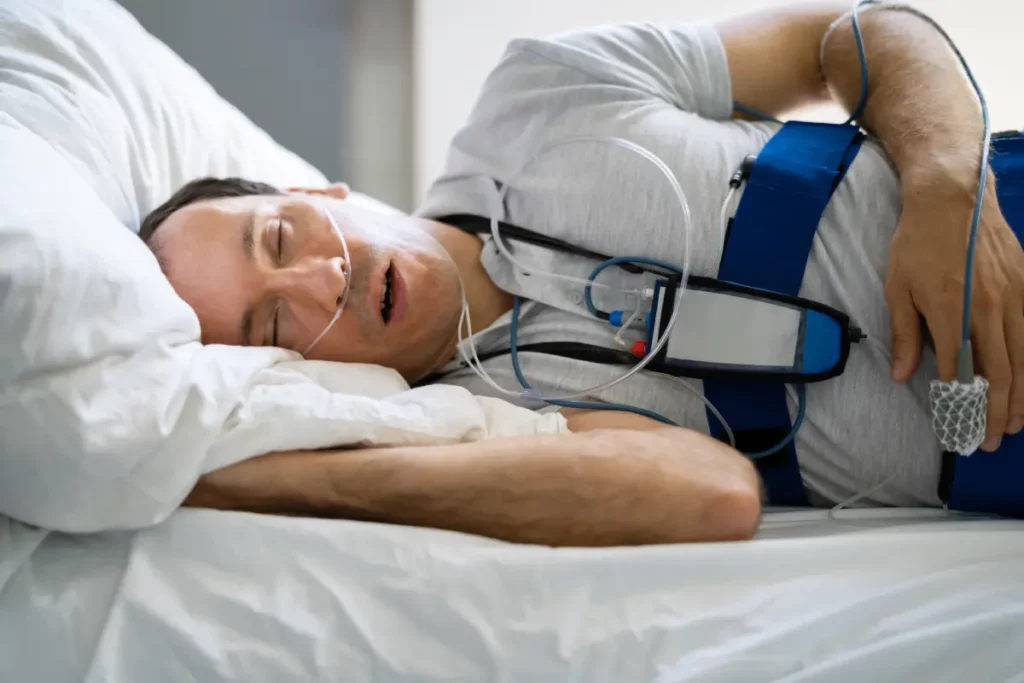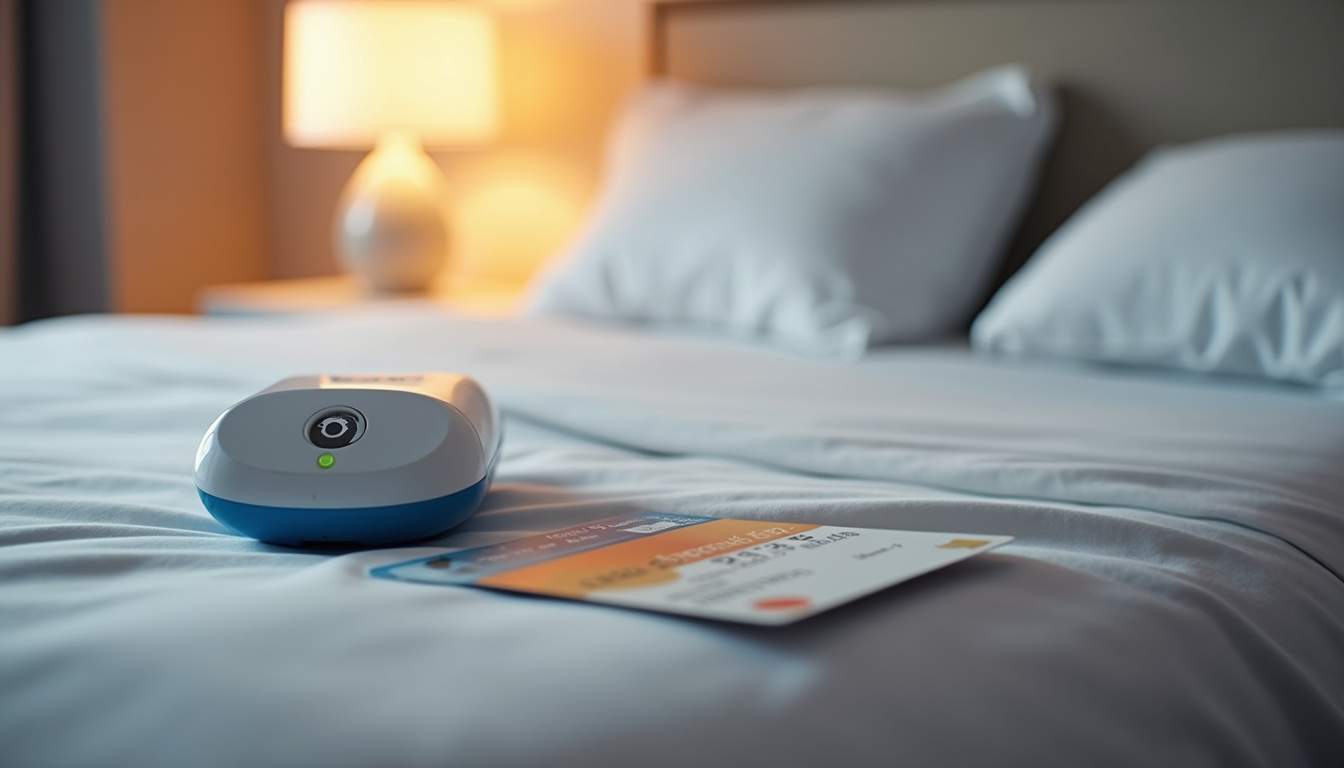Understanding Sleep Apnea
Sleep apnea is a serious sleep disorder that occurs when a person’s breathing is interrupted during sleep. This can lead to a host of health problems, including heart disease, high blood pressure, and diabetes. Understanding the condition is vital for those who suspect they might be suffering from it.
There are primarily two types of sleep apnea: obstructive sleep apnea, which is the most common form and occurs when throat muscles relax excessively, and central sleep apnea, which occurs when the brain fails to send the appropriate signals to the muscles that control breathing. In both cases, treatment is crucial for improving sleep quality and overall health. Additionally, a less common form known as complex sleep apnea syndrome can occur, which is a combination of both obstructive and central sleep apnea. This complexity can make diagnosis and treatment more challenging, highlighting the importance of thorough medical evaluation.
The Importance of Diagnosing Sleep Apnea
Diagnosing sleep apnea is essential because untreated sleep apnea can lead to severe health complications. By identifying the disorder early, patients can begin to manage their symptoms effectively, reducing the risk of long-term effects. Beyond the immediate health concerns, sleep apnea can also impact mental health, leading to anxiety and depression due to chronic fatigue and disrupted sleep patterns. While Medicare provides substantial assistance for those eligible, some individuals may find themselves without coverage or may seek alternatives. Various financial options can bridge the gap for sleep apnea test medicare.
A diagnosis often involves various assessments, including a detailed sleep history, physical examination, and sleep studies that can help determine the severity of the condition. Healthcare providers play a pivotal role in ensuring that individuals receive the necessary tests and treatments. In some cases, a home sleep apnea test may be recommended, allowing patients to monitor their sleep patterns in the comfort of their own home, which can be less intimidating than a sleep lab setting.
Common Symptoms of Sleep Apnea
Recognizing the common symptoms of sleep apnea is the first step toward seeking help. People with sleep apnea often experience loud snoring, episodes of breathing cessation during sleep, and restless sleep. Daytime sleepiness, morning headaches, and difficulty concentrating are also prevalent symptoms. Other signs may include irritability and mood swings, which can stem from poor sleep quality and insufficient oxygen levels during the night.
If you or a loved one exhibits any of these symptoms, it is crucial to seek medical advice. Early intervention can lead to more effective treatment options and a better quality of life. Lifestyle changes, such as weight loss, quitting smoking, and avoiding alcohol, can significantly alleviate symptoms for some individuals. Moreover, the use of continuous positive airway pressure (CPAP) machines has been a game-changer for many, providing a steady stream of air to keep the airways open during sleep, thus improving overall health and well-being.
The Role of Medicare in Health Coverage
Medicare plays a critical role in providing health coverage for eligible individuals, particularly for seniors and those with disabilities. It is crucial to understand what Medicare covers regarding health conditions like sleep apnea.
In general, Medicare covers diagnostic tests, treatments, and various health services, which can greatly impact those dealing with chronic conditions such as sleep apnea. Knowing the scope of Medicare’s coverage is essential in managing health costs effectively.

An Overview of Medicare
Medicare is divided into different parts, each offering specific services and coverage options. Part A covers hospital insurance, including inpatient care, skilled nursing facility care, hospice, and some home health care, while Part B covers outpatient services, including doctor visits and necessary medical equipment.
For individuals requiring sleep apnea testing, Part B is particularly relevant, as it can cover tests that help in diagnosing the condition. This includes polysomnography, which is often conducted in a sleep lab, as well as home sleep apnea tests that can be used to monitor sleep patterns in the comfort of one’s home. Understanding these options is vital for those experiencing symptoms like excessive daytime sleepiness or loud snoring, as timely diagnosis can lead to effective management of the condition. Learn more about monitor on https://www.iit.edu/cli/canvas/assessments-and-grading/remote-exams/proctoring-monitoredu
The Different Parts of Medicare
There are four main parts of Medicare: Part A, Part B, Part C, and Part D. Part C offers Medicare Advantage Plans that can provide additional benefits beyond traditional Medicare, while Part D focuses on prescription drug coverage.
The combination of these parts ensures that Medicare beneficiaries receive comprehensive care tailored to their health needs, including options for sleep apnea testing and treatment. For instance, many Medicare Advantage Plans include additional services such as wellness programs, which can help individuals manage their sleep apnea through lifestyle changes and education. Furthermore, Part D can assist with the costs of medications that may be prescribed for sleep apnea, such as those that address associated conditions like hypertension or anxiety, ensuring a holistic approach to the patient’s health management.
Medicare Coverage for Sleep Apnea Tests
The path to receiving coverage for a sleep apnea test can be significant for Medicare beneficiaries. Understanding what tests are covered is crucial for making informed decisions about your healthcare.

Medicare typically covers tests like polysomnography, which is conducted in sleep centers, and home sleep apnea tests that patients can use in their own homes. However, it’s essential to understand the specifics of eligibility and coverage options.
Eligibility Criteria for Coverage
To qualify for Medicare coverage for sleep apnea tests, beneficiaries must meet certain eligibility criteria. This often includes having a documented history of symptoms, undergoing a pre-assessment by a healthcare provider, and obtaining a referral for testing.
Ensuring that proper documentation and medical necessity is confirmed is crucial, as it impacts the approval of coverage for these essential tests. Additionally, beneficiaries may need to demonstrate that their symptoms significantly affect their daily life, as Medicare aims to prioritize coverage for those who are most in need of intervention.
Types of Sleep Apnea Tests Covered
Medicare covers a variety of sleep apnea tests, including in-lab polysomnography and at-home sleep apnea tests. In-lab tests provide comprehensive data and are usually conducted in facilities equipped with monitoring equipment, while home tests offer convenience and can be completed in a patient’s own bedroom.
Choosing the right type of test often depends on the severity of symptoms and recommendations from healthcare providers. Some patients may begin with at-home tests, while others might require an in-lab approach for thorough evaluation. It is also worth noting that in-lab tests can monitor a range of sleep disorders beyond sleep apnea, providing a broader understanding of a patient’s sleep health. This comprehensive approach can lead to more effective treatment plans tailored to individual needs, ultimately improving the quality of life for those affected by sleep-related issues. To read more about treatment click here.
The Process of Getting Your Sleep Apnea Test Covered
Getting Medicare coverage for a sleep apnea test can involve multiple steps, which is why understanding the process is vital for new applicants. It usually begins with a visit to a healthcare provider and culminates in receiving the necessary care.
Understanding each step can help patients avoid delays and complications in obtaining coverage for their tests. Additionally, being well-informed can empower patients to advocate for themselves throughout the process, ensuring they receive the care they need in a timely manner.
Steps to Apply for Medicare Coverage
To apply for Medicare coverage for a sleep apnea test, follow these generalized steps:
- Schedule an appointment with your healthcare provider to discuss your symptoms.
- Receive a referral for a sleep study, either at home or in a sleep lab.
- Undergo the sleep study as directed.
- Submit any required paperwork to Medicare to ensure coverage eligibility.
- Wait for approval notifications before undergoing treatment.
Each of these steps must be navigated carefully to ensure a smooth process. Clear communication with healthcare providers can help in understanding any prerequisites for testing. For instance, some doctors may require a detailed history of your sleep patterns or a physical exam to assess your risk factors before they will refer you for a sleep study. This initial consultation is crucial, as it sets the foundation for the entire process.
What to Do If Your Coverage Is Denied
Facing a denial for coverage can be stressful, but it is important to know that patients have options. If your application for coverage is denied, the first step is to request a detailed explanation for the denial.
Thereafter, you can appeal the decision if you believe the coverage should have been granted based on medical necessity. Using supporting documentation from healthcare providers can bolster your appeal and improve the chances of obtaining coverage. It may also be beneficial to gather testimonials from other patients who have successfully navigated similar situations, as this can provide additional context to your case. Furthermore, understanding the specific criteria Medicare uses to evaluate claims can help you tailor your appeal more effectively, increasing the likelihood of a favorable outcome.
Other Financial Options for Sleep Apnea Testing
Understanding all available resources can help in managing health-related expenses more effectively.
Private Insurance and Sleep Apnea Tests
For individuals with private insurance, coverage for sleep apnea tests can vary significantly. Many private plans follow similar guidelines as Medicare, covering certain diagnostic tests and therapies related to sleep apnea.
Always check with your insurance provider before undergoing any tests to confirm covered services and potential out-of-pocket costs.
Out-of-Pocket Costs and Payment Plans
For those without insurance coverage or facing significant out-of-pocket costs, discussing payment plans with testing facilities may be an option. Many facilities offer manageable payment options to make testing more accessible.
Additionally, some non-profit organizations provide financial assistance programs for individuals needing sleep apnea tests, making it easier to receive critical care.


